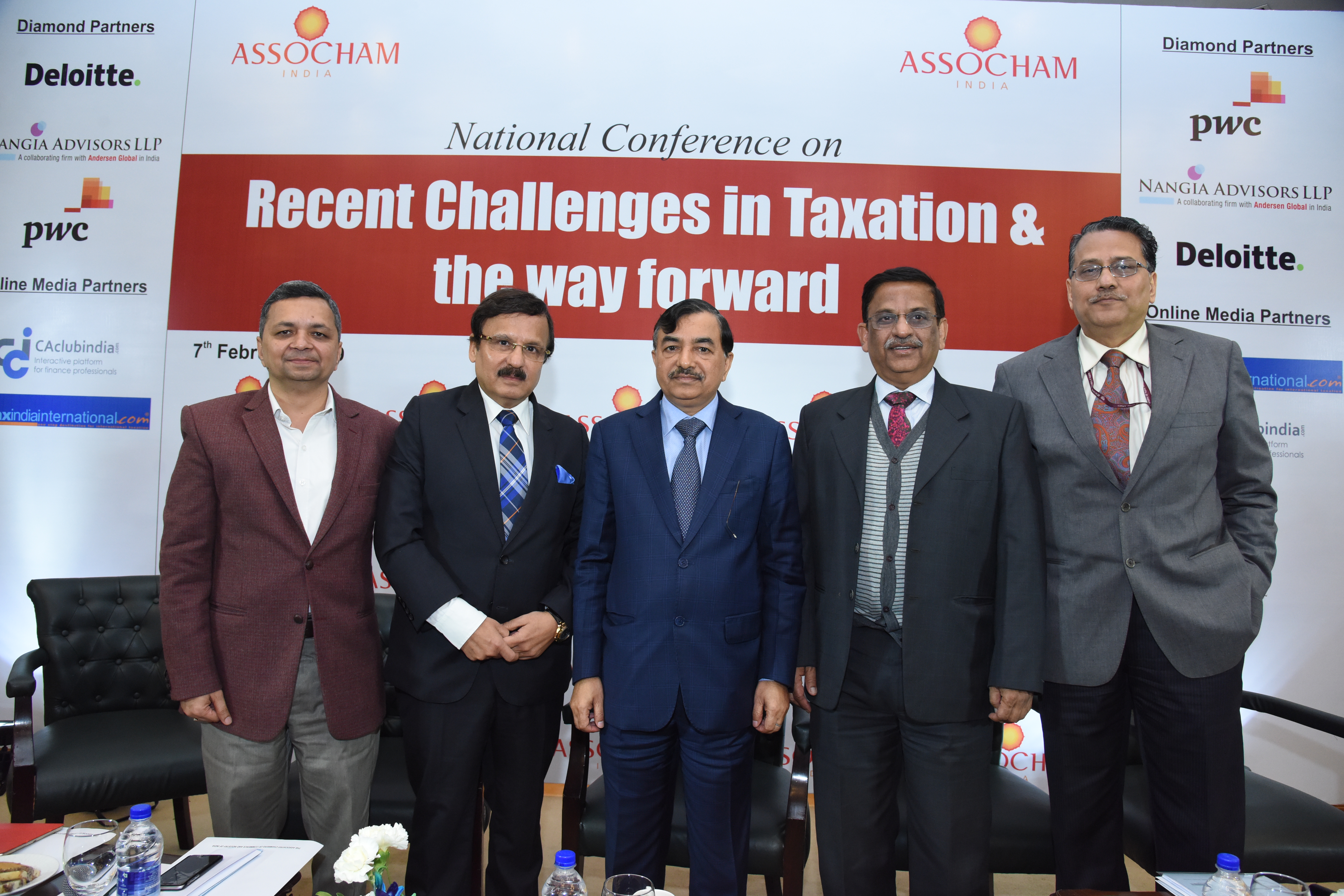NEW DELHI: Under Automatic Exchange of Information (AEOI) route, the Government is aggressively collecting information about foreign assets accumulated by people in foreign countries and for this, it has signed treaties with various countries such as Hong Kong, Switzerland to plug in the loopholes, informed Sushil Chandra, Chairman, Central Board of Direct Taxes (CBDT) at an event – ‘National Conference on Recent Challenges in Taxation and the Way Forward’ organised by ASSOCHAM in New Delhi.
Maintaining the rationale that there could not be exceptionally high tax rate, Mr Chandra said, “Last year we got 6.85 crore returns and the number of people who had filed the returns were around 5.44 crore, so if in just four years we could increase the tax return filers from 3.5 crore to 5.44 crore, it was a very big achievement of the department and right tax policy.”
He added that the direct tax to GDP ratio was 5.98% last year which was highest in the whole decade.
As per the data of the Income Tax Department, in this year, about 6.31 crore returns have been filed while 95 lakhs new tax payers have been added into the tax net, out of which 33,000 new taxpayers have been added in the last 15 days. About 1.50 lakh persons filed returns with income over Rs 1 crore; as against 88,000 persons in the FY 2013-14.
Talking about the efforts to encourage taxpayers disclose their foreign assets, Sushil Chandra added that the Black Money (Undisclosed Foreign Income and Assets) and Imposition of Tax Act has a triggering impact and as part of the Common Reporting System (CRS), it has helped the Income Tax Department to identify many people who have created many undisclosed foreign assets.
He appealed the taxpayers and the tax consultants to fairly disclose the foreign assets and income thereof under the assets schedule of their returns and cautioned that a failure to do so would invite prohibition under the Act. According to the Income Tax Department data, certain cases surfaced where foreign remittances of Rs 10 Lakh were made, but the taxpayers did not file the returns.
He maintained that the Government intends to bring a moderate tax regime with high level of compliances with innovative operational and policy initiatives through technology interventions, many of which have already been undertaken and implemented.
Speaking about initiatives such as limited scrutiny of the Income Tax returns where the back office will seek initial clarification on peculiar aspects they find in the returns and in case of incorrectness of the information, the same will be handed over to the concerned Income Tax Officer (ITO) for further verification. The Income Tax Department, as Chandra said, is facing the challenge of widening and deepening the tax base, but expected that this initiative will ease the return verification processes, as it is recognising the needs of the taxpayers, social needs and ease-of-doing-businesses.
Rahul Garg, Chairman, National Council on Direct Taxes, ASSOCHAM said that there has to be convergence between the tax payers and the Income Tax Department with moderate tax regime with the use of technology.
Also present on the occasion were – Binod Kumar, Chief Commissioner of Income Tax (International Tax & Transfer Pricing), S. P. Singh, Co-Chairman, National Council on Direct Taxes, ASSOCHAM and Rakesh Nangia, Co-Chairman, National Council on International Taxes, ASSOCHAM. The Conference also discussed the scenario of ‘Changing Landscape of Indian and International Tax Systems’.



